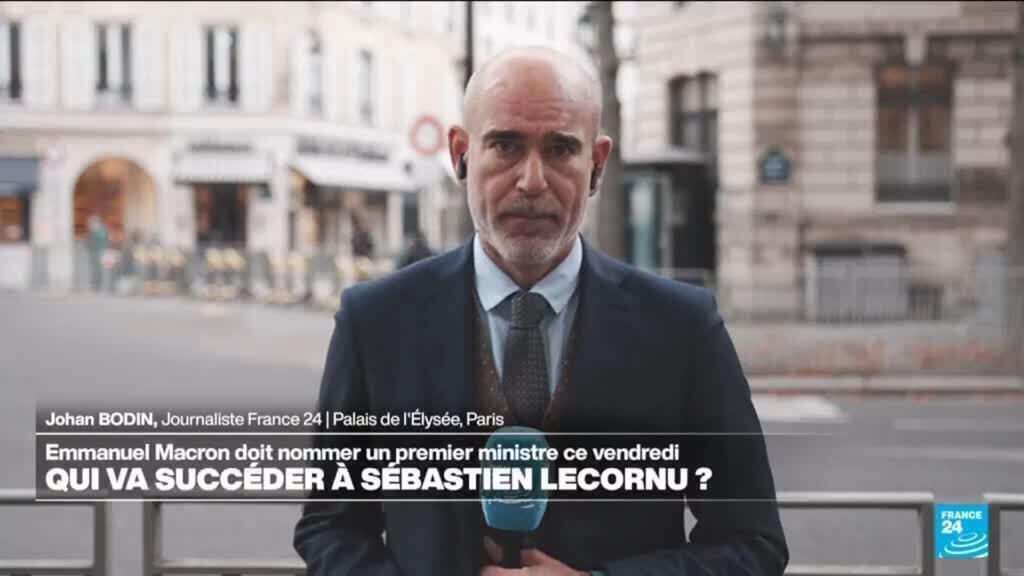France Faces Political Turmoil as President Macron Prepares to Name New Prime Minister
France's political crisis deepens as Macron readies a new Prime Minister amid opposition dissent and coalition struggles.
- • Sébastien Lecornu has stepped down as Prime Minister, paving the way for a new appointment by President Macron by October 10 evening.
- • Outgoing Minister of the Interior Bruno Retailleau announced his resignation during a firefighters' congress, highlighting government turnover amid crisis.
- • Macron's meeting with major party leaders excluded RN and LFI, both critical of the process and calling for Assembly dissolution.
- • Analysts anticipate motions of censure against the new government; calls for a Prime Minister from a different party to foster cooperation emerged.
- • Mass protests and strikes continue nationwide, intensifying political instability as France approaches critical budget deadlines.
Key details
France is in the midst of a significant political crisis as President Emmanuel Macron prepares to appoint a new Prime Minister by the evening of October 10, 2025. This announcement follows the departure of Sébastien Lecornu, who officially declared he had completed his mission as Prime Minister, signaling a government transition during turbulent times marked by mass protests and political instability.
On October 10, Bruno Retailleau, the outgoing Minister of the Interior, publicly acknowledged his resignation during the 131st national firefighters' congress in Le Mans, highlighting the political upheaval coinciding with urgent governance challenges, including the imperative 2026 budget submission deadline.
President Macron convened a critical meeting at the Élysée Palace with leaders of key political parties, notably excluding the far-right Rassemblement National (RN) and left-wing La France Insoumise (LFI). RN's Jordan Bardella criticized the meeting as a protective maneuver for Macron against potential Assembly dissolution, while Marine Le Pen condemned the process as politically shameful and called for a dissolution. Similarly, Jean-Luc Mélenchon of LFI dismissed the consultations as mere "folklore," rejecting collaboration with Macron's government. Amid this deadlock, Gabriel Attal advocated for appointing a Prime Minister from a different political party to facilitate cooperation, although Jean-Louis Borloo, a rumored candidate, denied any contact about the position.
Political analysts predict motions of censure against the new government, reflecting the opposition's resistance. Sébastien Lecornu has been making efforts to unify his coalition amid these tensions, yet the political landscape remains fraught. These developments unfold against the backdrop of widespread public unrest, with reports of 85,000 protesters participating in recent strikes nationwide.
The situation was reported live from the Palais de l'Élysée by journalists including Johan Bodin and Clovis Casali, emphasizing the intensity of the moment. Political journalist Flore Simon provided expert analysis on the unfolding crisis, underscoring its complexity and potential implications for France's governance.
As the deadline approaches for naming the new Prime Minister and finalizing the budget, the country's political future hangs in the balance with significant challenges ahead.
This article was translated and synthesized from French sources, providing English-speaking readers with local perspectives.
Source articles (5)
Source comparison
Announcement of new Prime Minister
Sources disagree on the timing of the new Prime Minister's announcement.
franceinfo.fr
"Emmanuel Macron is set to announce a new Prime Minister on October 10."
lefigaro.fr
"Macron has promised to appoint a new prime minister by Friday evening."
Why this matters: One source states that Emmanuel Macron is set to announce a new Prime Minister on October 10, while another source indicates that Macron promised to appoint a new Prime Minister by Friday evening, which could imply a later announcement than October 10. This difference affects the understanding of the urgency and timeline of the political situation.
Latest news
Pau's Local Election Campaign Gathers Momentum Amid Broader Political and Economic Concerns
French Companies and Regions Accelerate Efforts in Nature-Related Economic Transition
France Heightens Military Readiness Amid Iran Conflict, Pledges Defense Support to Gulf States
Jean-Luc Mélenchon Faces Accusations of Antisemitism Over Joke on Raphaël Glucksmann's Name
Tensions and New Faces Mark the 2026 French Municipal Elections
France Bolsters Military Presence in Gulf Following Iranian Drone Attacks
The top news stories in France
Delivered straight to your inbox each morning.



